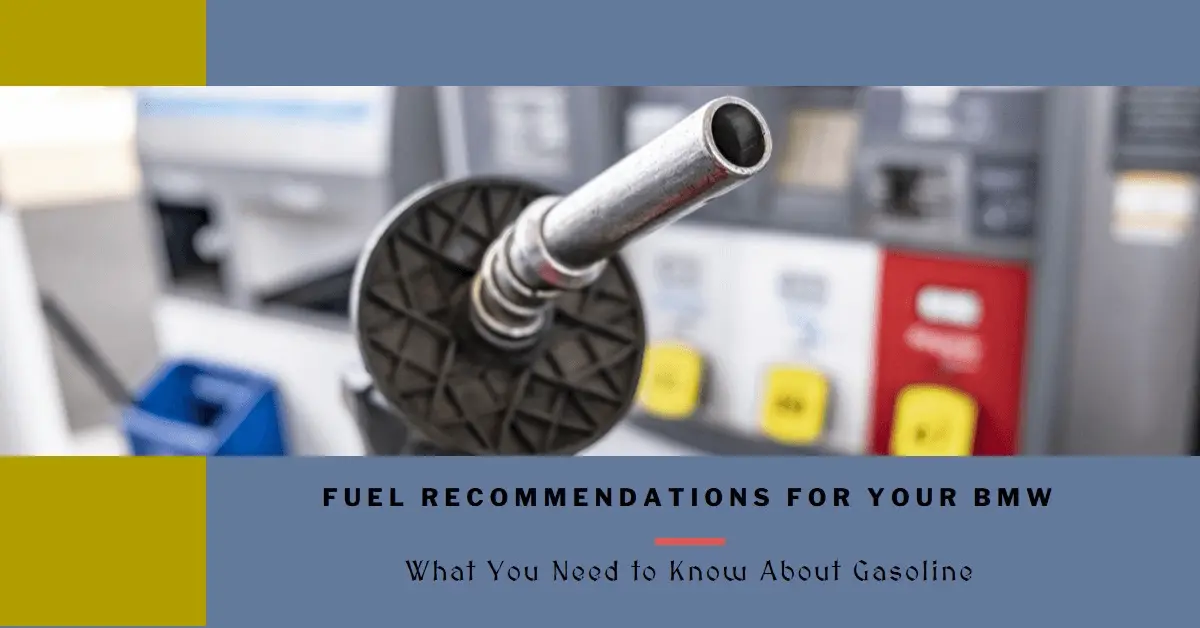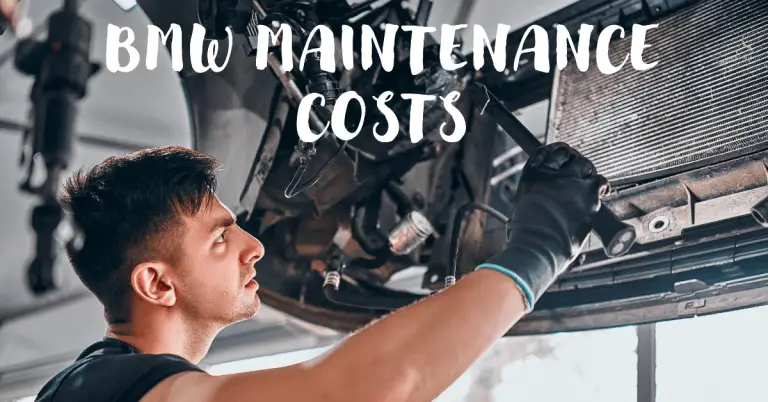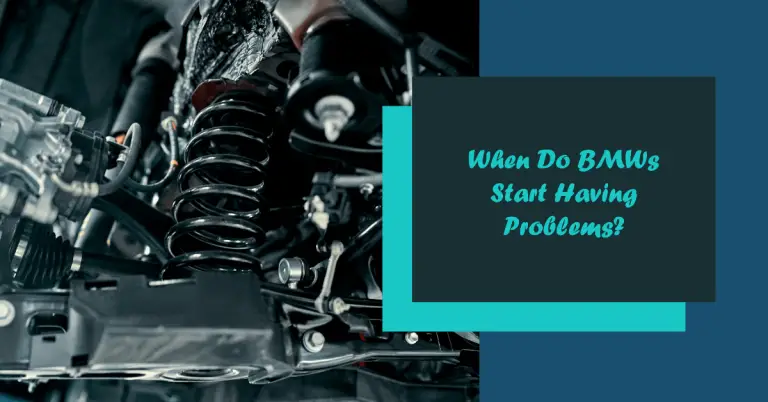Does a BMW Require Premium Gas? (Fuel Recommendations)
If you drive a BMW, you may have wondered whether you really need to use premium gasoline or if you can get away with regular gas. This is a hotly debated topic among BMW owners hoping to save money at the pump. But is it worth the risk?
In this comprehensive guide, we’ll examine whether premium fuel is required for BMW vehicles. We’ll look at insights from auto experts, BMW mechanics, owner forums, and the manufacturer itself to provide a 360-degree view. Key factors like engine performance, efficiency, and potential damage will be analyzed so you can make an informed choice on the best gas for your BMW.
BMW and Premium Gas: An Overview
BMW has a reputation for crafting high-performance luxury vehicles. Their engines are engineered for power, acceleration, and an ultra-smooth ride. To achieve this, many BMW engines have:
- High compression ratios
- Turbocharging
- Advanced sensors and injection systems
These features require fuel that can withstand compression and combust smoothly. That’s where premium gasoline comes in.
What is Premium Gas?
Premium gasoline has a higher octane rating than regular gasoline. Octane measures a fuel’s resistance to engine knocking or pinging during combustion.
- Regular gasoline = 87-88 octane
- Premium gasoline = 91-93 octane
The higher octane rating allows premium fuel to:
- Resist knocking/pinging under pressure
- Burn slower and more controlled
- Handle higher compression without premature detonation
This makes it ideally suited for high-performance, high-compression engines like those found in BMWs.
BMW’s Recommendations
BMW states that their vehicles are designed to run optimally on premium gasoline. This includes models with:
- Turbochargers
- High-compression engines
- High-performance M series
Consult your owner’s manual to see if your model requires or recommends premium gas. Using unleaded gasoline with an octane rating below 87 is not approved.
While certain models like the base 3 series can tolerate regular gas, BMW emphasizes that performance and fuel economy suffer compared to using premium.
The Potential Risks of Using Regular Gas in BMWs
The octane rating of regular gasoline (87-88) is below what most BMW engines require for optimal efficiency and performance. Here are the potential risks of using regular gas in a BMW according to experts:
Engine Knocking or Pinging
The most serious risk is sustained engine knocking or pinging. This occurs when fuel ignites prematurely from pressure and heat. The uncontrolled combustion makes a loud knocking or pinging noise.
This engine knocking stresses components and can lead to:
- Cylinder and piston damage
- Excess engine wear
- Oil contamination
Knocking also decreases performance as the engine struggles to adapt. Using lower octane fuel than recommended increases the chances of persistent knocking issues.
Loss of Horsepower and Acceleration
The sensors in BMW’s engine management system can adjust to compensate for lower octane fuel. However, this can result in a noticeable drop in engine power and acceleration.
Experts estimate a loss of up to 10 horsepower when using regular gas in a BMW designed for premium.
Owners who have accidentally used regular gas report slower acceleration and lacklustre engine responsiveness. This defeats the purpose of owning a famously quick and powerful BMW.
Decreased Fuel Mileage and Efficiency
In addition to reduced performance, gas mileage and fuel efficiency suffer when using regular gas in a BMW.
The engine has to work harder to account for the lower fuel quality while preventing knocking. This means more fuel is consumed to travel the same distance when using regular gasoline.
The fuel savings from choosing cheaper gas are counteracted by lower fuel economy. So there are no net savings in the long run.
Potential Engine Damage Over Time
While modern BMW engines are built to avoid catastrophic damage from lower octane gas, prolonged usage of regular fuel can still wear components faster.
Issues like excess carbon buildup, contaminated oil, and accelerated component corrosion are risks with regular gas. This could mean pricier maintenance and repairs down the road.
Using the manufacturer recommended premium fuel provides optimal corrosion protection, detergent agents, and additive packages to enhance engine longevity.
Voiding of Warranty Coverage
If an engine problem arises from using fuel that isn’t recommended, BMW may deem this as “outside of warranty” damage. This means expensive repairs would not be covered.
Always adhere to the manufacturer fuel recommendations to keep your engine protected under warranty. Check your warranty terms for details.
Expert Insights on Using Regular Gas in BMWs
We’ve examined the potential risks, but what do the experts say about using regular gas in a BMW? Here are key insights from mechanics, BMW dealerships, and auto specialists:
Triangle Imports
Triangle Imports, a leading BMW service centre, strongly advises against using regular gas:
“While some BMW models may suggest regular fuel as an option in the owner’s manual, the potential negative impacts on the car’s performance and longevity make it not worth the risk.”
They emphasise that premium fuel is required for the high-compression BMW engines to avoid knocking and damage.
BMW of Tenafly
The service centre at BMW of Tenafly reiterates the importance of using premium gasoline:
“The higher octane rating of premium gas (up to 92 compared to regular gas’s 87) is crucial for BMW’s high-performance engines…Using regular gas can stress the car’s electronic knock sensors, impair performance, reduce acceleration, and decrease power.”
They warn against deviating from BMW’s fuel recommendations.
CARspec
Luxury car specialist CARspec advises:
“Putting regular gas in a BMW is not recommended. Even modern BMW engines, while they likely won’t fail, will suffer in terms of horsepower, torque, and fuel efficiency. It’s best to use premium fuel as BMW intended.”
This sums up the consensus among experts – use the recommended premium gas for optimal BMW performance.
BMW Owner Experiences with Regular Gas
Beyond expert advice, looking at actual owner experiences provides valuable insights on using regular gas in BMWs. Here are some key anecdotes from BMW forums and testimonials:
F30 BMW Series Owners
A discussion among F30-generation 3-series owners reveals mixed results from using regular gas. Some report no issues, others describe noticeable power loss:
“I used the regular once by accident in my 2013 328i. Definitely lacked the lower end punch I’m used to. Using premium again restored the brisk acceleration I expected.”
“I’ve used regular in my F30 335i a couple times with no issues, but I still use premium to be safe long term.”
This highlights the potential variation between models when using lower octane gas.
Key Takeaway: While some owners get by unscathed in the short term, others experience immediate performance decline.
1 Series Owner Review
A 2011 128i owner shared his experience after an accidental regular gas fill-up:
“On my very spirited drive home, I could feel power loss and some ‘bogging’ when accelerating hard through 2nd and 3rd gears. Strongly suggest owners stick to premium fuel.”
This reveals that reduced acceleration and power can be felt quite soon after switching gas types.
Key Takeaway: Lower performance with regular gas can be perceived after just one tank in some BMW models.
Warning About Knocking Issues
One owner describes gradual problems after periodically using regular gas:
“My 435i started knocking intermittently after fill-ups with regular fuel against BMW’s guidance. After it became more frequent, I switched back to premium and the knocking disappeared. Learn from my mistakes!”
This serves as a warning about potential long-term engine issues from repeated regular gas usage.
Key Takeaway: Knocking problems can develop gradually from not using premium fuel in BMWs that require it.
These first-hand experiences align with the expert guidance. While the effects differ between models, regular gas use in BMWs often leads to reduced performance and risks long-term engine health.
Recommendations for Using Premium Gas in BMWs
Given the weight of evidence from BMW, mechanics, specialists, and owners themselves, what’s the verdict on premium vs. regular gasoline usage in BMWs?
Stick With Manufacturer Recommendations
As the first step, always consult your owner’s manual to see the required or recommended fuel type for your specific BMW model and engine. This list from BMW also shows models approved for regular gasoline.
If your manual indicates premium gasoline is required or recommended, do not stray from this – even if it’s tempting to save money with cheaper gas. The trade-off is not worth potential issues.
Use Premium Fuel for High-Performance BMWs
For high-compression engines, turbocharged models, and performance M Series BMWs, premium fuel is essential Here is the continuation of the long-form article:
These types of BMW engines need higher octane gas to prevent knocking while maintaining power and efficiency. The consensus from BMW mechanics and technicians is clear – don’t risk regular gas in high-performance models.
Be Wary of “Top Tier” Regular Gas
Some gasoline brands advertise “top tier” regular gas that supposedly delivers premium performance. BMW still recommends using actual premium gasoline where required. As CARspec notes:
“Don’t be fooled by claims that some regular gasoline is just as good as premium. For BMWs, stick with fuel that meets the ratings and detergent requirements set by the manufacturer.”
The advanced formulations of true premium gasoline are best for BMW’s precision engines.
Use Gasoline Additives Sparingly
While gasoline additives that boost octane exist, BMW cautions that:
“Aftermarket octane boosters and cleaning agents should be used with restraint. In some cases, they do more harm than good.”
Always check with your BMW service professional before adding any aftermarket products to your fuel tank. Premium gasoline already contains sufficient additives in most cases.
When in Doubt, Ask Your BMW Mechanic
If you are still unsure what type of gasoline to use after consulting your manual and the other recommendations here, ask your BMW service department.
Certified BMW mechanics can provide personalised guidance based on your specific model, mileage and engine conditions.
Cost Considerations with Premium Gas
For many owners, the higher price of premium gasoline is the main barrier to consistent use. What’s the true cost difference, and is it worth it?
Price Difference Varies
The cost difference between regular and premium gasoline depends on your local fuel prices. On average expect to pay:**
- Regular unleaded: $3.50-$4.00/gallon
- Premium unleaded: $0.10-$0.70 higher per gallon
For example, if regular costs $3.50/gallon, premium may be around $3.85/gallon. The difference can be larger though in some areas.
Overall Operating Costs
When calculating total cost of ownership for a BMW, higher insurance, maintenance and repairs must be factored in alongside fuel. In that context, the extra cost of premium gasoline becomes a smaller factor.
Using the recommended fuel protects your investment and helps retain performance and resale value – which offsets the upfront premium fuel cost.
Peace of Mind
For many BMW owners, the peace of mind of using the manufacturer recommended fuel is worth the extra cost. Protecting the precision BMW engine provides confidence and enjoyment of the driving experience.
Conclusion: Prioritise Premium Gas for Your BMW
When it comes to fueling your BMW, skimping on lower octane gas to save money can cost you in the long run:
- Reduced performance and acceleration
- Increased risks of engine knocking/damage
- Lower fuel efficiency and gas mileage
- Compromised engine health and longevity
The consensus among BMW engineers, mechanics and aftermarket specialists is clear – use premium gasoline as recommended for your model. The extra cost per tank is relatively small compared to protecting your investment.
By following BMW’s fuel requirements, you ensure a smooth and powerful driving experience. Your BMW’s engine will perform optimally for years to come when running on premium fuel.
So next time you pull up to the pump, reach for the premium unleaded and don’t look back. Your BMW will thank you!






